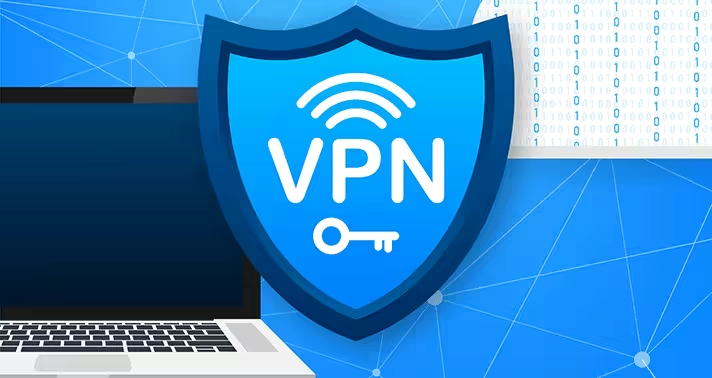The digital landscape, which we traverse daily, continues to expand and bring about the rise of cyber espionage and threats. Cybercrooks advance along with online security updates and tools. Their use of AI (Artificial Intelligence) and machine learning has raised concern among cybersecurity experts. After all, we must hold sensitive information dear and guarded in a world where data has become a new currency.
However, regular web users may need to learn which tools can effectively shield their privacy from snoopers, trackers, malicious code, viruses, ransomware, and other kinds of malware. While there is no solution to fit everything under one umbrella, a VPN (Virtual Private Network) is one of the prime picks. The technology safeguards your privacy and, to an extent, your device.
This article will overview VPNs and how they can benefit those seeking peace of mind in their online ventures.
What is a VPN?
In short, a VPN functions like a protective tunnel between you and the internet. This means your ISP (Internet Service Provider) and other snoopers can’t peek inside this tunnel. Once connected, your device becomes part of the VPN’s private network. Thanks to that, your IP address can be swapped with one of the IPs offered by the VPN’s servers.
For a VPN to be effective, it must have AES-256 encryption, modern tunneling protocols like WireGuar, kill switch, IP & DNS leak protection, and hefty extras like obfuscation. There are several providers at the top of the VPN ladder. People especially often pin ExpressVPN vs NordVPN, often including Surfshark, Proton VPN, and others into the battle. However, the security package is what matters most when picking the right VPN for your privacy.
Protect your browsing history from ISP & third parties
A VPN shields your privacy by concealing your IP address and encrypting your web activity. In simpler terms, it keeps your browsing history hidden from ISPs and other third parties. Thus, your online ventures remain confidential and protected from prying eyes.
In numerous countries, an ISP can build your internet profile based on your online habits and browsing history. But they can’t do so with a VPN since the software obscures your data. Hence, you can traverse the internet without worrying about constant monitoring from either side.
Now, a public Wi-Fi network can be a playground for cybercriminals. Hackers love to intercept data on these networks. However, a VPN encryption can make access to your data extremely difficult even for the most talented cybercrooks. Additionally, a VPN adds an extra layer of security, ensuring your device also remains off-limits to anyone without your permission.
Prevent digital surveillance
Unfortunately, digital surveillance and cyber espionage have become commonplace recently. These advancements have handed malicious individuals and authoritarian groups tools to access and sabotage private information swiftly. Consequently, we’ve witnessed a steady uptick in cyberattacks, raising the stakes for data theft and hacking. It’s quite a cause for concern since we use devices for shopping, banking, and online appointments.
In some unsettling instances, there are claims that governments have turned to digital surveillance and cyber espionage, even against their citizens. These instructions can result in serious privacy breaches, where personal data is being harvested unbeknownst to people. What’s more, such activities can target activists, fostering a climate unfriendly to free speech.
A VPN is a prime solution against such instances. Thanks to the industry standard AES-256 encryption (banks and militaries employ it, too), even the government would find it hard to penetrate the VPN network. The same goes for cybercrooks whose curiosity and ambitions have gone too far. In countries where totalitarian surveillance prevails, like China or Iran, it’s best to opt for VPNs with obfuscation since it conceals VPN usage in the first place.
Stop ad trackers from monitoring you
Online advertising is one of the most annoying occurrences we must face on a daily basis. They tend to pop up often and out of nowhere. Well, most of the time, they’re tailored to your search history. It can be quite irksome and feel like an invasion of your online space because it means that companies keep tabs on the websites and apps you visit.
Since a VPN acts as a digital disguise, the software makes it tough for advertisers to snoop around your online activities. Because of that, your data stays out of their hands, letting you surf the web without worrying about being bombarded with targeted ads. So, with a VPN, it’s like browsing in stealth mode, especially if you get one with a built-in ad blocker.
Wrapping up
It’s our fundamental right and duty to take online privacy protection into our own hands. A VPN plays a superhero role in helping us retain anonymity. The service encrypts all your data and hides your IP address from third parties, like ISPs and hackers. After all, privacy is not something to be snatched from us easily.
It’s a basic human right to have sensitive information kept to us unless we’re willing to share it. But, with the advancing technology in the arsenal of malicious cybercrooks, it’s getting difficult to preserve privacy. Luckily, employing tools like VPNs empowers us to explore the web and shake off the constant feel of somebody’s eyes on our backs.



